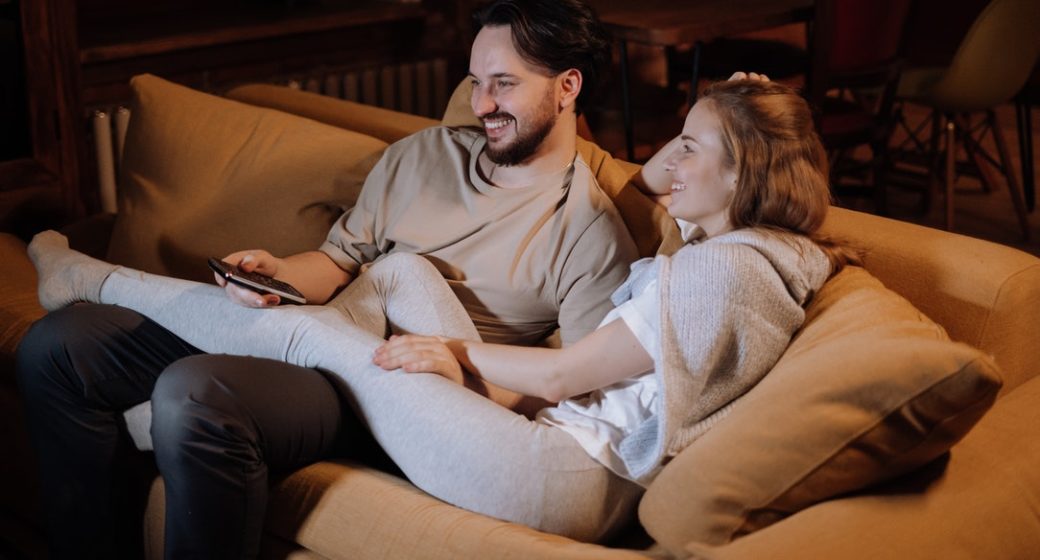
The connection between hearing loss and anxiety
March 27, 2020
How hearing aid accessories bring us closer in times of isolation
April 1, 2020Why it’s important to negotiate with your hearing partner

Are you someone with hearing loss and in a “mixed marriage” with a full hearing partner or spouse?
As we all know, learning how to communicate successfully through interpersonal challenges is a critical aspect of any relationship. With or without a hearing loss, love demands presence and attention. Therefore, it’s especially important to negotiate with your partner if you have hearing loss.
Impact of Hearing Loss on Relationships
I have learned the hard way negotiating with your hearing partner is especially important. There are a variety of situations, circumstances, and events you engage in together that may live outside your one-to-one communication.
Various relationships in my life have taught me a lot about the impact of my hearing loss on those I love. Throughout, I’ve adopted new skills and employed a variety of tricks to attract, manage, and maintain good relationships. And nothing has been more important than learning how to negotiate those twists and turns that happen outside the comfort and closeness of your own home.
Central Scenarios to Negotiate with Your Hearing Partner
Here are a few central scenarios that have come up in my personal relationships. I offer them to demonstrate how good negotiating skills might protect your own. They are organized as questions your partner may ask.
“Just How Many Times are You Going to Need Something Repeated?”
As many as are necessary for me to hear you and for us to communicate successfully.
“What Demands Will You Place Upon Friends and Family to Accommodate Your Hearing Loss?”
I will always seek what is comfortable for them. I do not expect to hear everything that’s said. Though I try not to as a habit, when necessary, I will pretend (fake) that I heard something simply to facilitate easy flow of communication.
“Can We Go Out With Friends?”
Yes, of course. I only ask that we negotiate the setting. I prefer quieter places to loud restaurants, clubs, bars, or music venues. But that does not exclude them from our fun. I will bring ear plugs to use whenever we go out, but cannot promise that I will always be in the flow of conversation. I also suggest that when we can, we invite folks to our home for food, music, and chat.
Read more: Never-mind: How to handle communication in groups
“Can We Attend Music Concerts?”
Yes, and I want to. That said, the artists and the venue will make the difference for me. Is it someone we both know and whose music we love? Or is it music that you enjoy, but whose music I am not familiar with or like? How are the acoustics and the noise level at the venue? I always want to be with you whenever it works, but will also invite you to attend music concerts with friends even if I elect not to go.
“How About Movies, Plays or Shows?”
Again, as with music concerts, it depends. Are there accessibility accommodations for me? Do we know and enjoy the actors/performers? I have trouble with British and some other accents, low talkers and mumblers, and poor sound systems. I do fairly well in most movie theaters but if I need one, closed captioning devices do not always work well and cut down on my enjoyment. We can always try to find open captioned movies when they are available. Let’s also use multi-cable channels and captioning to watch movies at home. If there is a movie or show you want to see that may be a problem for me, again, please go with my support.
“Can We Have Fun Together When We Go Out?”
This may sound like a funny question, but it’s an important one. No matter how much we cherish each other or look forward to a movie or night out with friends, there is no guarantee that the pieces will all fit or that everything will work just fine. I will not pretend to be comfortable in every situation, but will always try to make the best of it. To repeat, I will also encourage you to go out by yourself or with friends whenever you wish.
Read more: 5 tips to prepare for social outings if you have hearing loss
OK, do these handy, well-researched negotiating tips always work?
Of course not.
Actual Example
Allow me to share am actual example that might spare you both anguish and some cold hard cash. A few weeks back, my sweetheart wanted to attend a concert of Celtic music. I agreed to accompany her even though Celtic music is not my cup of Irish breakfast tea.
To provide some context, we do attend concerts, shows, and local performances that we both enjoy and that meet our parameters. Sometimes, for me or both of us, an event can be less than scintillating, too loud, too soft, or indecipherable. When that happens, I default to one of several responses: I wear ear plugs, move to another place in the venue, or fall asleep – which for a time became my go-to strategy.
This particular evening, with some sense of Celtic Music, I figured I could do whatever I needed to do to make it through the show – for her.
Wrong, wrong, wrong. (Pay attention here.)
Before heading out, my sweetheart needed to be reassured that she wasn’t dragging me to something that I would not enjoy. “Are you sure?” she asked. No, I wasn’t sure, but I said “Yes” anyway. Just for her.
Big mistake. (See where I’m going with this?)
Never mind what I should have said. I said “Yes,” and looked forward to a night out together.
The Night Out
The music was sleep inducing, down tempo and sometimes so soft, I could hardly hear it. Halfway through the first set, my head dropped to my chest and…..zzzzzzz. At intermission and after a good nap, I was awoken with “C’mon, we’re going home.” “No,” I insisted, and told her that I was fine and that we should stay until the end. For her.
She insisted that I was not having a good time, nor was she – due to the fact that I was not having a good time. She stood up, put her coat on, and threatened me with: “If you’re not coming, I’m going to drive home without you. Let’s go.” (Can you believe she would do that? Neither could I.)
HA! I thought. She wouldn’t just leave me here 20 miles from home. And so, like any proud knucklehead I declared, “I am not leaving until the end of the concert.”
She walked out of the balcony and I stayed/slept almost to the end. I fully expected her to return to her seat any minute – until it was eminently clear that she was not coming back. I got my coat and walked to the lobby where I fully expected her to be sitting waiting for me.
Read more: 8 Communication Tips to Strengthen Relationships
Calling My Bluff
The woman of my dreams was nowhere to be seen. The thought finally crossed my sleepy mind that she had indeed, called my bluff. What did I do then? Well, like any intelligent man would do, I called Uber.
Forty minutes later plus a hefty car fare, I walked into our house, chastened. I vowed to never, ever, ever again fake my enthusiasm about anything just to be together. She would have a had much better time (my goal for her all along) with like-minded and good hearing friends and I could have been home…zzzzz.
The Lesson: Negotiate With Your Hearing Partner
Don’t try to be a hero with your hearing partner.
“Don’t try to be a hero with your hearing partner.”
Negotiate everything. Admit your limitations and preferences and trust that love will keep you together even if you don’t attend every party, date, concert, movie or show together. Trust me, if you both don’t have a good time, what’s the point of faking it? You both lose. And you just might save some dough.




